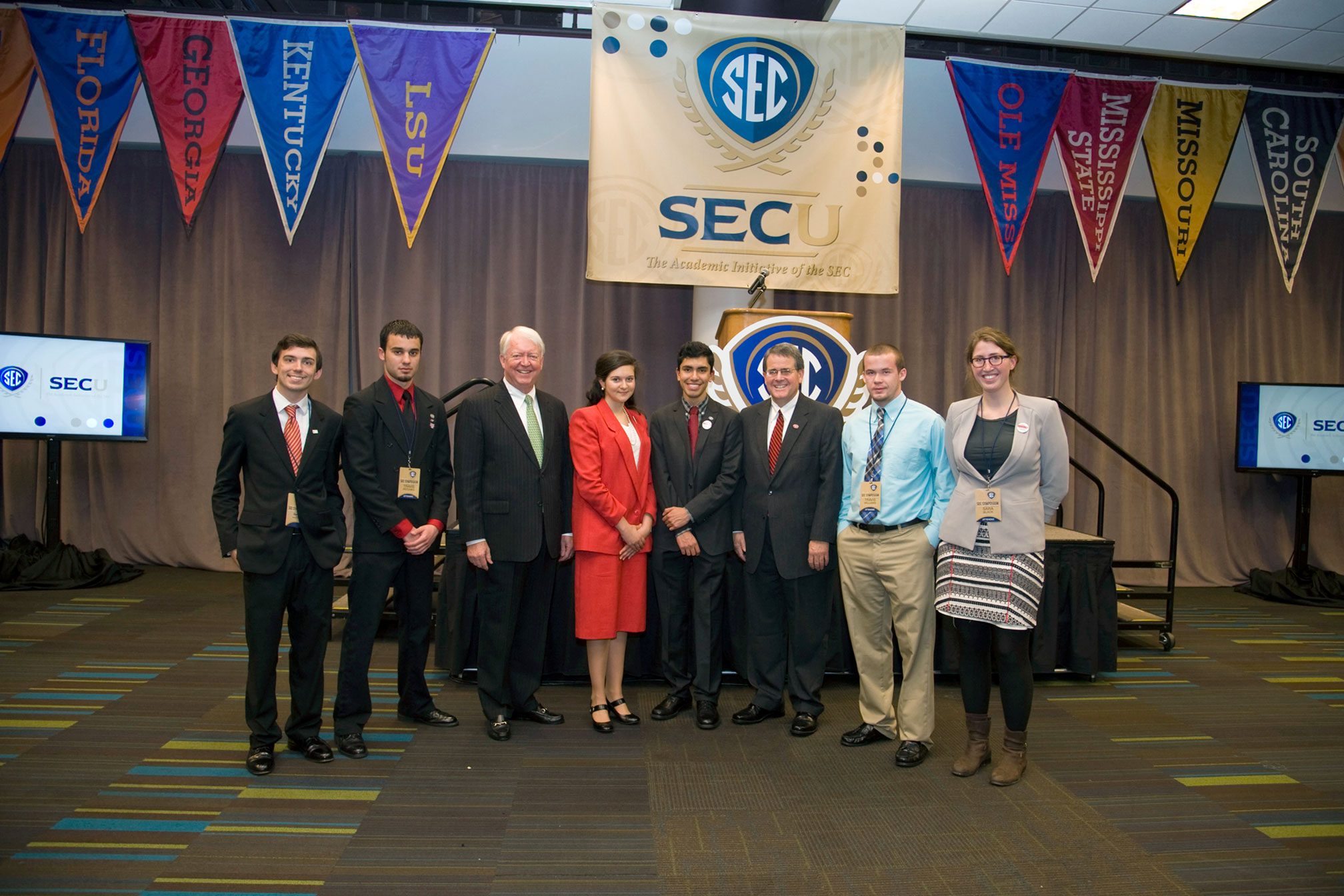Experts from all of the Southeastern Conference’s 14 universities joined with representatives from industry and government in Atlanta on Feb. 10-12 at the inaugural SEC Symposium.
The meeting was designed to forge new collaborations among universities and to share the research and innovation of SEC institutions with the outside world.
The University of Georgia and the UGA Bioenergy Systems Research Institute served as leaders for this first meeting, titled “Impact of the Southeast in the World’s Renewable Energy Future,” which brought together researchers working on the cutting edge of sustainable energy discovery.
“I think it’s fantastic that all of the SEC research universities from a region of the country that share similar challenges and similar opportunities are all coming together to share their expertise and potentially work together in collaborative ways,” said David Lee, UGA vice president for research. “This is a great way for us to address future challenges in the energy arena.”
In presentations moderated by UGA faculty and administrators, experts from different SEC schools discussed the unique energy opportunities within the Southeast and what obstacles must be overcome to make renewable energy sources efficient and cost-effective.
Of particular interest at the symposium was the future of biomass and bioenergy. Because the Southeast is especially well-suited for growing a variety of promising biomass crops, such as switchgrass, miscanthus, poplar, pine, algae and a host of other plants, researchers discussed in great detail the challenges and opportunities associated with the growing, harvesting, refinement and distribution of this next generation of biofuels that may prove environmentally and economically important for the region.
But presentations were not limited to biomass alone.
Researchers also discussed myriad other potential energy solutions, including solar, wind, nuclear and marine wave/flow technologies.
Other experts addressed the growing need for increased renewable energy education and outreach, both to inform the public about the realities of energy production and to help prepare America’s youth for a future in the renewable energy workforce.
This is only the first of what administrators hope will become a longstanding SEC tradition.
Future symposia will address new and different challenges, but they will continue to draw on the SEC’s strong foundation in research, education and outreach.


